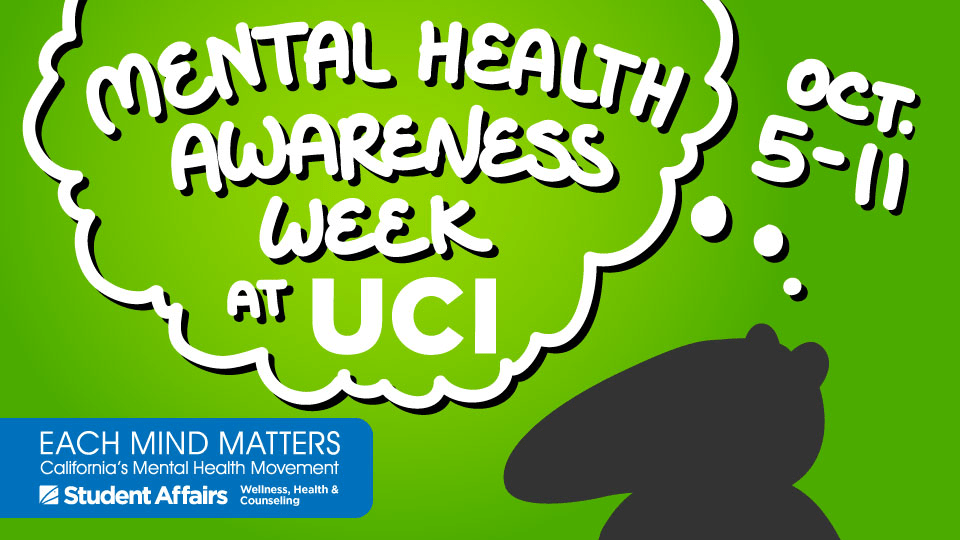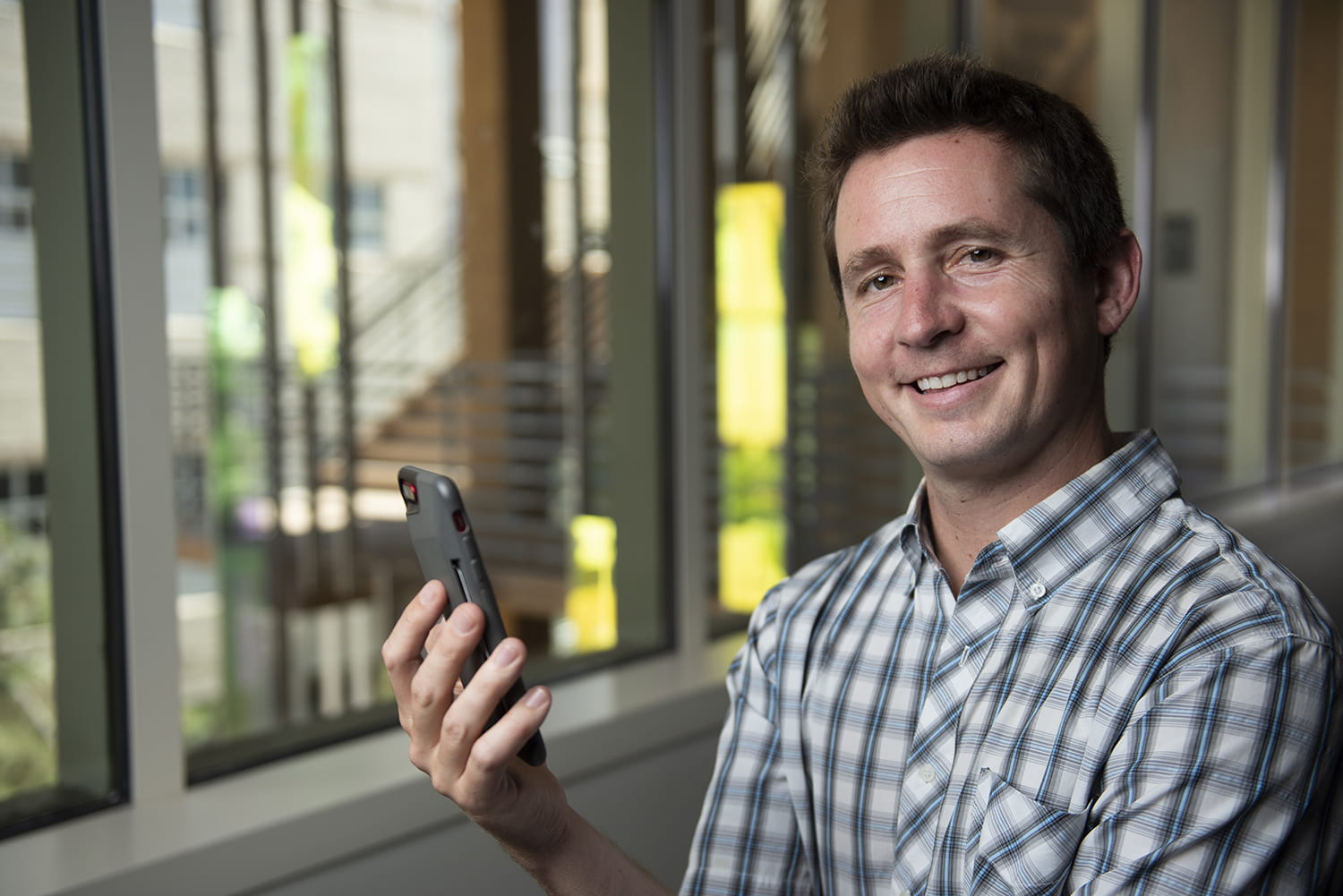Keep calm and Zot on
Campus highlights Mental Health Awareness Week Oct. 5-11
It’s Mental Health Awareness Week at UCI and Marcelle Holmes, assistant vice chancellor of Wellness, Health & Counseling Services wants students to know she understands the stress they may be under.
“There are all kinds of pressure – from parents’ expectations mixed with their own,” says Holmes, a clinical psychologist. “We have students who were in the top 10 percent of their high school class facing obstacles for the first time. They need to develop resilience to bounce back after failure.
“At UCI, that’s the spirit of what I do – enable students to accomplish what they came here to do,” she says.
Holmes, helps the campus’s 30,000 students achieve their academic dreams by providing them with resources for avoiding excessive stress, building and maintaining a strong body and mind, and, yes, weathering the occasional crisis.
Her office includes the Health Education Center, which offers counseling and education on health-related issues such as alcohol and eating disorders. The center has a new wellness room where students can meditate, play fitness games on Nintendo Wii and practice yoga or deep breathing. Such calming activities can have significant psychological benefits, Holmes says.
A growing number of researchers, including UCI biophysicist Shin Lin and psychiatrist Dr. Roger Walsh, have found that meditation, tai chi, and other mind-body practices can improve mental and physical health. In a 2011 study, Walsh showed that “therapeutic lifestyle changes” such as getting more exercise, spending time outdoors and even helping others can be as effective as drugs or counseling in treating an array of mental illnesses, including depression and anxiety.
Holmes herself is a certified yoga instructor who has led meditation sessions for students and given presentations on mindfulness – living in the moment instead of worrying about the future or dwelling on the past.
“I’m no stranger to anxiety. Yoga has helped me manage stress better,” she says. “When it comes to anxiety, you’ve got to find that sweet spot. If you have too little, you’re not motivated to do anything. And if you have too much, you become paralyzed. We want students to be engaged, not overwhelmed by stress.”
Her office works to ensure those students who do become overwhelmed have a strong safety net.
“If we have a student of concern, we try to get ahead of the problem and reach out before there’s a threat,” she says. “We can play a key role by recognizing signs of distress and identifying a student in trouble.”
Those students can be referred to UC Irvine’s Counseling Center, which offers a broad range of mental health services, including individual, couples, family and group counseling as well as psychotherapy. The center also provides urgent care, crisis response, consultations and outreach programs for the campus community.
“Students will have a difficult time taking maximum advantage of UCI’s academic and co-curricular resources if they have trouble adjusting to the campus, managing their stress, taking care of their health, coping with disabilities, developing healthy and wholesome relationships, and crystallizing their identity or career direction,” says Thomas Parham ’77, vice chancellor for Student Affairs, which oversees Wellness, Health & Counseling Services. “[Marcelle] Holmes is clinically astute and a commanding presence when urgent issues demand a professional who can frame the issues, build a consensus and render a decision.”
For Holmes, helping students reach their potential is her greatest reward.
“I absolutely loved college and graduate school and want to create the same kind of supportive environment that nurtured me,” she says. (She earned bachelor’s degrees in French and psychology from Vassar College and a doctorate in clinical psychology from the University of Michigan; her mother and father have master’s degrees in psychology.)
“I hope to make it easier for UCI students to make healthful choices and to cultivate a lifestyle of good self-care. It’s my dream job.”




